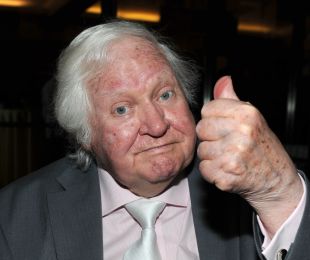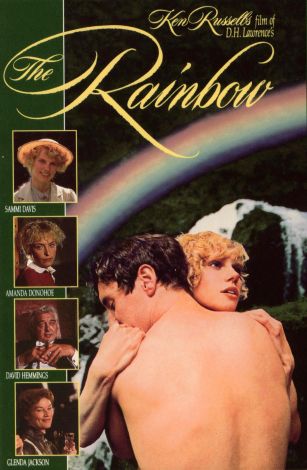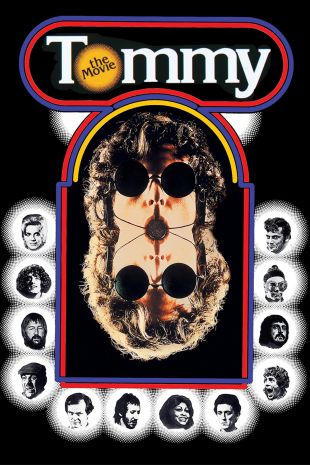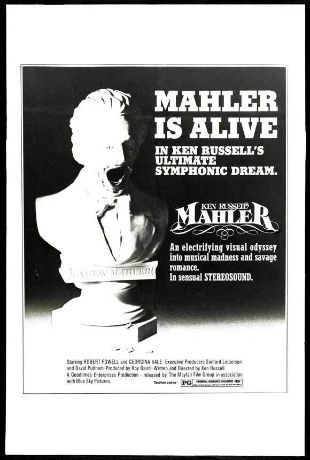British director Ken Russell started out training for a naval career, but after wartime RAF and merchant navy service he switched goals and went into ballet. Supplementing his dancing income as an actor and still photographer, Russell put together a handful of amateur films in the 50s before being hired as a staff director by the BBC. Russell made a name for himself (albeit a name not always spoken in reverence) during the first half of the '60s by directing a series of iconoclastic TV dramatizations of the lives of famous composers and dancers. And if he felt that the facts were getting in the way of his story, he'd make up his own -- frequently bordering on the libelous. If he had any respect for the famous persons whose lives he probed, it was secondary to his fascination with revealing all warts and open wounds.
A film director since 1963, Russell burst into the international consciousness with 1969's Women in Love, a hothouse version of the D.H. Lawrence novel. No director who staged a scene in a mainstream movie in which two men wrestled in the nude could escape notice, and thus Russell became more of a "star" than his actors. While some viewers had their sensibilities shaken by Women in Love, others had their sensibilities run through the blender with Russell's next film, The Music Lovers. Predicated on the notion that Peter Tchaikovsky and his wife were, respectively, a homosexual and nymphomaniac, the film's much discussed "highlight" is a scene in which Nina Tchaikovsky (Glenda Jackson) allows the inmates in the cellar of an insane asylum to reach up and play with her privates. But this was kid's stuff compared to Russell's The Devils (1971), an ultraviolent and perversely anachronistic adaptation of Aldous Huxley's The Devils of Loudun. Russell returned to his musical theater roots with The Boy Friend (1971), a bloated version of Sandy Wilson's intimate 1920s pastiche, brought The Who's rock opera Tommy to the screen in a visually flamboyant cinematization that starred Roger Daltrey and Ann-Margret,
and returned to offbeat biographical material with Lisztomania (1975) and Valentino (1975). The latter film not only suggested that Rudolph Valentino (Rudolf Nureyev) performed totally nude in his silent films, but also offered up the spectacle of Huntz Hall as producer Jesse Lasky. At this point, even some of the most devoted fans of Russell's outrageous (but undeniably brilliant) visual sense were fed up with his shock-for-shock's-sake approach and his all-consuming narcissism. Following the mind-bending horrors of Altered States in 1980, Russel maintained momentum with Gothic, a visually lavish retelling of the weekend of debauchery that gave birth to the Frankenstein mythos in the mind of a young female author named Mary Shelley. Though the film may have had its fair share of detractors due to Russel's signature departure from historical fact, it nevertheless aquired a cult following thanks to its heavy atmosphere and dark fantasy. After detailing the exploits of yet another famed author (this time Oscar Wilde) in the 1988 comedy drama Salome's Last Dance, Russel turned out another curiousity in the form of that same year's Lair of the White Worm. Based on Dracula author Bram Stoker's short story of the same name of featuring a memorable performance by a pre-romantic comedy stalwart Hugh Grant, Lair of the White Worm's outrageous, sex vampire excess and near surreal humor earned the effort a proud spot in many a cult movie aficionado's collection. He was back in his old form with 1991's Whore, which conveyed several times over that life on the streets is hell -- then for good measure, said it a few more times. Backed by a childishly slavering ad campaign, Whore brought Russell into the spotlight again for what would be the last time in some while.
Dabbling in television for much of the 1990s, may of Russel's efforts during the decade were fairly unmemorable despite featuring such noteworthy actors as Richard Dreyfuss (Prisoner of Honor) and Bryan Brown (Dogboys). Just when it seemed as if Russel's career may have lost steam for the last time, the ever unpredictable director struck back in 2002 with the unhinged comedy horror musical The Fall of the Louse of Usher. Brimming with the director's trademark debauchery and offering a curious meld of various stories by timeless horror author Edgar Allan Poe, the film may have found Russell back in proper form, but still somehow managed to elude audiences due to both its independent origins and a virtually nonexistant advertising campaign. Russell's last major assignment involved scriptwriting work on Master Class (2011), a biopic of Maria Callas starring Faye Dunaway and adapted from the popular stage play of the same name. The interest that this project pointed to was a long-standing one: Russell had spent many years mounting operas onstage, and in 1988 contributed a segment to Don Boyd's operatic episode film Aria. Russell died in late November 2011, at age 84, following a series of strokes.



